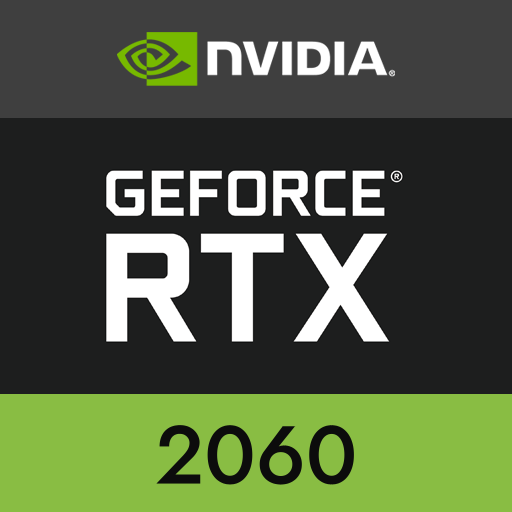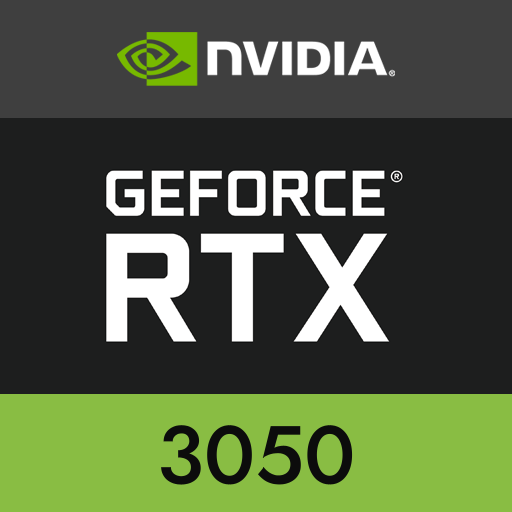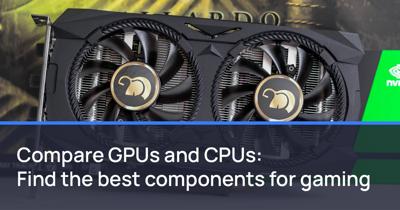GeForce RTX 2060 vs GeForce RTX 3050 comparison
For gaming, the GeForce RTX 2060 graphics card is better than the GeForce RTX 3050 in our tests.
The GeForce RTX 3050 has a slightly higher core clock speed. The core clock speed (or base speed) is the frequency at which the GPU core runs. This metric makes sense when comparing GPUs of a similar architecture or generation. In addition, the GeForce RTX 3050 also has a slightly higher boost clock speed. This is a frequency that can be reached if the GPU is cooled sufficiently and has enough power.
As stated by the manufacturer, the GeForce RTX 3050 has slightly more memory with 8 GiB of memory compared to 6 GiB. Memory size doesn't directly affect performance, but too little memory will certainly degrade gaming performance.
In addition, the GeForce RTX 3050 has a slightly lower TDP at 130 W when compared to the GeForce RTX 2060 at 160 W. TDP (Thermal Design Power) measures total heat output from the chip.
In terms of raw gaming performance in our GPU benchmark, the GeForce RTX 2060 is better than the GeForce RTX 3050.


























No comments yet! Be the first to leave a comment using the form below.